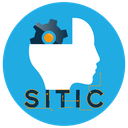Executive Secretary

2nd International Symposium on "Generation and Transfer of Knowledge for Digital Transformation"
SITIC2023
Abstract
• Problem: Many publications on tourism, itineraries or routes, and points of interest do not allow new researchers to understand what is known and what remains to be known.
• Objective(s): Analyze the publications on this topic in the Scopus database, identifying the yearly evolution of the terms, to propose a thematic classification according to the major themes found.
• Methodology: We first applied topic modeling by year of publication to summaries of articles that meet the filters used; and then we applied grounded theory coding to classify the generated themes.
• Results and discussion: Four major topics were identified: Tourist Information Planning (topic 1), Integrated urban tourism solutions to improve visitor experiences (topic 2), Optimization of cultural experiences with temporal city data (topic 3), and Tourist mobilization and perspectives of cultural networks (topic 4).
• Conclusions: The identified topics are based on the tourists' need to make their trips more efficient (topic 1), seeking to propose first technological solutions (topic 2), combining tourist itineraries and routes with cultural and complementary activities to generate a better tourist experience (topic 3), until the sector recovers after COVID-19 (topic 4).
Resumen
• Problemática: Muchas publicaciones sobre turismo, itinerarios o rutas, y puntos de interés no permiten a investigadores nóveles entender qué se conoce del tema y que falta por conocer.
• Objetivo(s): Analizar las publicaciones sobre este tema en la base de datos Scopus, identificando la evolución de los términos por año, para proponer una clasificación temática según los grandes temas encontrados.
• Metodología: Primero aplicamos modelado de temas por año de publicación a resúmenes de los artículos que cumplen con los filtros usados; y luego aplicamos la codificación de la teoría fundamentada para clasificar los temas generados.
• Resultados y discusión: Se identificaron cuatro grandes temáticas investigadas: Planificación de la Información Turística (tema 1), Soluciones integradas de turismo urbano para mejorar experiencias de visitantes (tema 2), Optimización de experiencias culturales con datos temporales de ciudades (tema 3), y Movilización turística y perspectivas de las redes culturales (tema 4).
• Conclusiones: Los temas identificados parten de la necesidad de los turistas de hacer más eficientes sus viajes (tema 1), buscando proponer primeras soluciones tecnológicas (tema 2), combinando los recorridos turísticos con actividades culturales y complementarias para generar una mejor experiencia en los turistas (tema 3), hasta lograr la recuperación del sector luego del COVID-19 (tema 4).
About The Speaker

Ph. D. Victor W. Bohorquez-Lopez

Discussion




